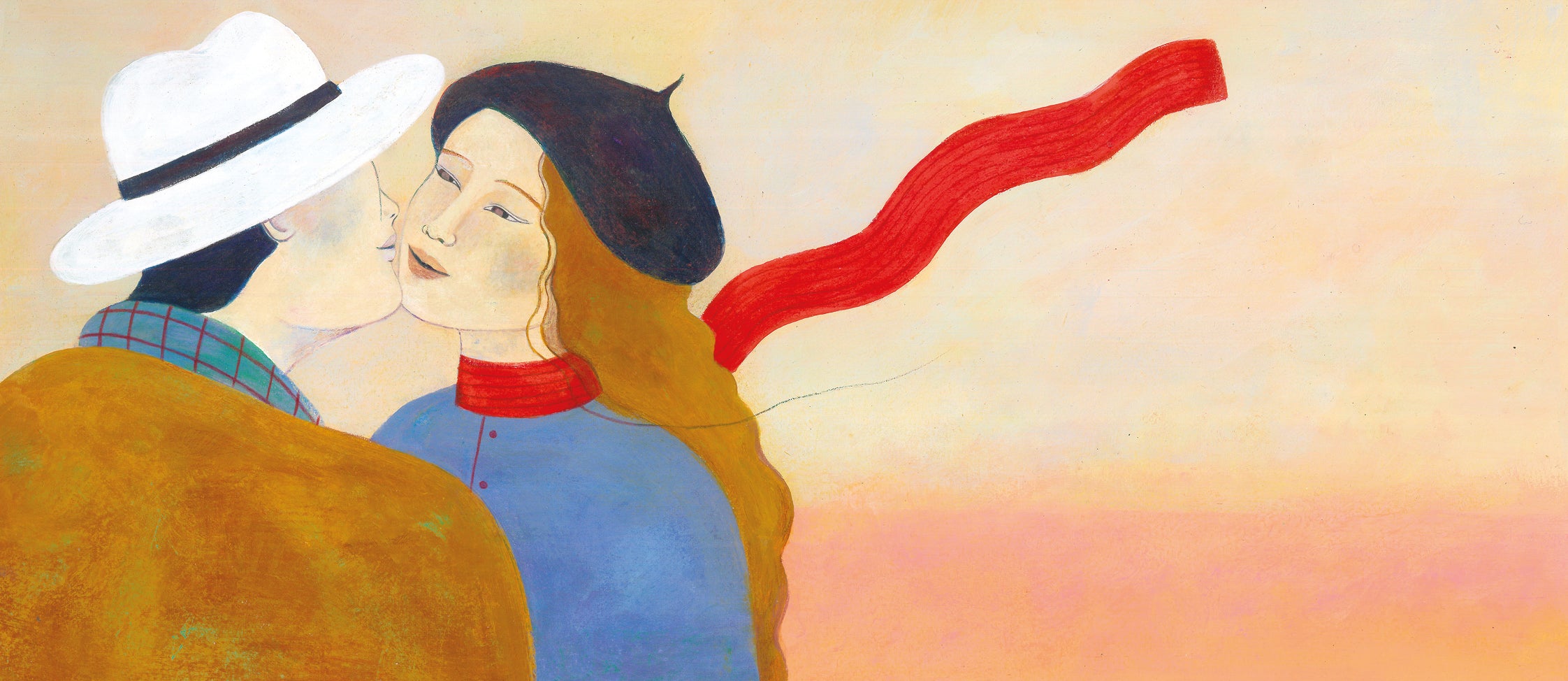Your Cart is Empty
By Eugenia Perrella
Hello, Good morning, Good afternoon, Good evening, How are you? .. Any of these words, and many others, expressed in whatever language, have such a magical meaning that they unite and connect us as a community. Since we are little we acquire the habit of greeting almost without realizing it, in a natural way. Everyone has their own, it depends on where we are on the planet and the traditions we have. But the meaning is always the same.
Perhaps there are times when we want to greet the whole world and others when we don't really want to, but whatever it is, with that intense greeting, or that almost mute one, we weave an infinite network that unites us.
In this special time, we have the need to remember the importance of greeting, that happiness we feel when kissing or hugging. The kiss and the hug are treasures that we keep for when we can give them away again. Meanwhile, we acquire other forms that, also without knowing it, come from distant times, from other customs that today allow us to continue relating.
That's what we talk about in this book, manners in which each one can be identified and of those that seem distant and surprising to us. There are affectionate greetings, like the kiss and the hug; more formal, such as handshakes and bows; more spiritual, depending on beliefs and religion; fun and informal that have a very special story. 
There are countries where kisses They multiply. In some regions there are several when greeting each other. Several are not two, not three ... There are areas in which there are up to four. It would be good to have a map to know how to do it without making mistakes, since in some places not only the amount of kisses vary, but they start on the right cheek and in others on the left. Quite a mess for someone clueless. 
Other formal greetings have their origins in distant times, but very distant. The handshake, by shaking the sleeves, comes from the times when warriors demonstrated that their attitude was peaceful. The same as the bows, which at first were only directed to a certain social class and over time they spread and popularized. 
La spirituality it also occupies a special place in some regions. With a very close encounter energies are exchanged. And the smellThat very primitive instinct is also the protagonist. Not only because of what it means in itself, but because of sharing a divine energy. 
There are rhythmic gestures that are made with the hands that became popular in such a way that they are made throughout the world. They are strokes with a typical style that do not have a formula or a pattern, they are made to measure of the imagination. But its origin has such an important meaning that many would be surprised to know it.
In short, although they may come from remote places, all greetings have something that, if we search very well, they can represent us. Perhaps we just need to observe, think and realize that, even though we are far away and in distant latitudes, we are closer than we think. That the intention is the same and the greeting, be it in the language and in any way, is a gesture that unites us infinitely.
Other curious facts about greetings in different parts of the world:
Greece
Don't even think about placing your fingers open when you extend your hand, since the palm with the fingers apart is considered a serious insult in this country. Thus, the fingers tightly together and that it is not something that by wanting to be nice you become rude.
Britain
Never think of giving them the V sign with your two fingers, for them that gesture means an insult. The story goes back a long way, and it was a gesture used by their enemies during the Hundred Years War to threaten to cut off archers' fingers. But finally the British won and they began to show those two fingers showing a clear challenge. Over time, that gesture began to be used as an insult.
Bulgaria
Due to the influences they have had throughout history, it is common for them to use the very Italian to say goodbye. Hello or that to give thanks they use the most French please. So if you say goodbye and say thank you at the same time, it may sound strange, but the bye, thank you.
A very particular custom is that Bulgarians deny and nod their heads backwards than most of the world. So if someone says for example Hello, are you ok?, and if the answer is Yes, the head is turned from one side to the other, and if it is No, it goes up and down. A bit confusing for those who do it the other way around in an already automatic way. But everything is a matter of habit.
Arabian countries
In Islamic countries, you should always use the right hand, as the left hand is generally used for other purposes, such as personal cleaning, so be careful with offering the left hand because no one will want to touch it.
Zimbabwe
The person who greets claps once, while the other responds with two open claps. This custom is also performed in Mozambique, but with three applause each person who greets.
El wai, put the palms of the hands together and make a bow, is very common among Hindus and Buddhists. The higher the hands are placed, the greater the sign of respect.
